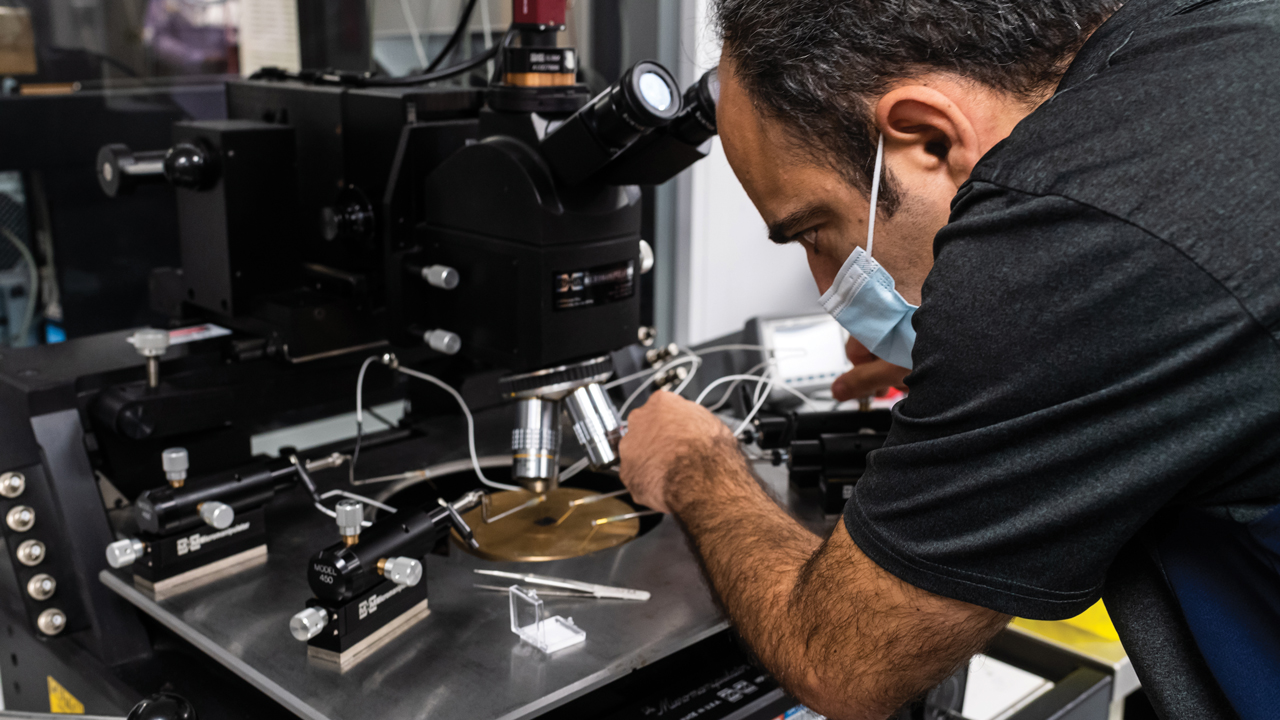A testament to impactful research
By Joe McAdory

Masoud Mahjouri-Samani, assistant professor in electrical and computer engineering, had a big 2021. One project was awarded $499,940 by the National Science Foundation (NSF), while another revealed instant test results for the COVID-19 virus.
Mahjouri-Samani’s study, “Multi-Material Manufacturing of Eco-Friendly and Biodegradable Paper-Based Flexible Hybrid Electronics,” demonstrates a transformative dry additive nanomanufacturing approach that enables the printing of eco-friendly papertronics. Currently, substrates in use are made of polymers, which never decompose. A team of researchers created the world’s first machine that can print on any substrate.
He is joined on the project by a team of Auburn Engineering co-principal investigators from the departments of mechanical engineering and electrical and computer engineering.
Aside from eco-friendly creations, Mahjouri-Samani’s study, “Two-Dimensional-Material-Based Field-Effect Transistor Biosensor for Detecting the COVID-19 Virus,” provides an alternative to detecting specific viruses.
The team developed the tiny electronic device based on 2D materials that are modified with antibodies so that it can immediately detect the virus spike protein. When the virus spike protein interacts with the antibody within the device, it impacts the electronic properties of the atomically thin monolayer 2D material. Once the lab technician puts the sample drop on the transistor surface, the result is evident.
Collaborators include Michael Hamilton, professor and director of the Alabama Micro-Nano Science and Technology Center, Marcelo A. Kuroda, associate professor in physics and Sahar Hasim, assistant professor in biology at Mercer University.

